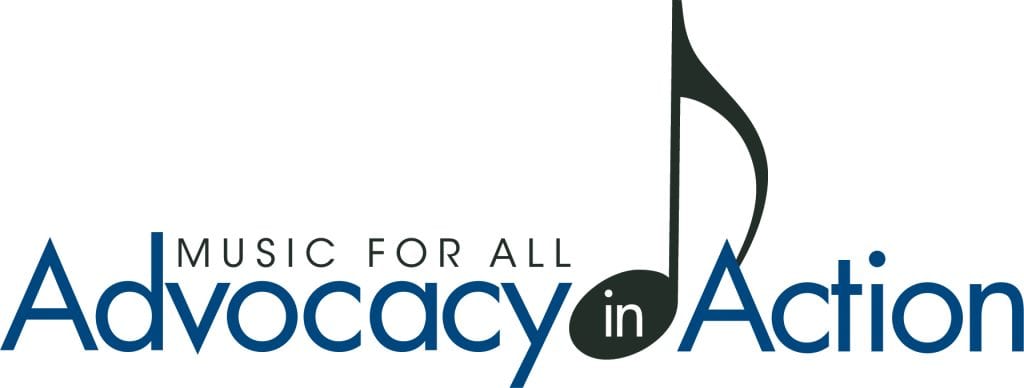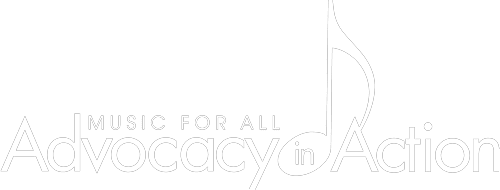Getting to Know You
Cedar Grove High School, NJ
90 Rugby Road, Cedar Grove, NJ, USAAward: Bronze, 2019

Project Description
Cedar Grove High School is a relatively small high school with approximately 500 students in grades 9-12. Even though it is on the smaller size in terms of enrollment, it has a very strong music program that we are very proud of. With this small enrollment comes many opportunities for students, but at the same time presents many challenges. Scheduling has become a challenge for students with Honors and Advanced Placement classes that only meet once or twice in the school’s master schedule. We have on-going concerns and motivation to keep music accessible to students who want and depend on music classes in their individual schedules.
We created a Music Advocacy Committee designed to work consistently with the students and administration to create an environment where students can best keep music in their academic schedules. The Committee is composed of our Director, two parents who are members of the Music Matters booster organization, and two students.
Our high school is structured so that incoming students take a required course combination and are allowed only one elective. Student schedules are released two weeks ahead of the start of school, and schedule changes are permitted for a short period. We found that many students who had been actively involved in the middle school music program–some of whom had expressed a desire to pursue music in high school–were not able to fit music into their schedule. This resulted in frustrated students and parents as well as smaller music classes.
In forming our Advocacy Committee, we aimed to take a proactive and positive approach to our interaction with the Guidance staff. Rather than deal with schedule conflicts on an individual basis–when it was often too late to address–we requested a meeting with the high school Principal and Guidance Counselors to better understand their process for the upcoming year. We learned more about how the size of our school affects the offerings for students (i.e., usually only one section for each AP class) and can present conflicts. We also gleaned from our interactions that music electives were not weighted as heavily as what the administration considered academic courses.
We addressed this situation on several levels. First, we worked with students still in middle school to make them aware of all opportunities for involvement with music in high school. We spoke to them about advocating for themselves and making sure that their guidance counselors understood the importance of music in their lives–that it wasn’t just an option for an elective, but indeed a desired choice.
Tools used to better inform middle school students and their families included a student-developed video as well as a brochure. The video is posted on the CGHS Music Matters YouTube account and has also been shown at the CGHS High School Open House.
We established and grew our social media presence on Facebook, Twitter, and Instagram, not only to publicize our events, but also to disseminate information about the power of music and music education on intellectual, social and personal development.
Target Audience
Communication is essential between students, families, and guidance and school administration. We encourage open communication between students and guidance when establishing the importance of managing class schedules and helping students find a way to make music work.
Community Impact
About ten choir, band, and orchestra students were unable to fit music into their schedules last year. This year, there are less than five. Although the numbers are small, so is our high school enrollment. We consider this a huge success and attribute a great deal of the improvement to the enhanced communication with guidance as they are establishing their scheduling process. They embraced the concept of “Getting to Know You” in determining the students’ schedules. The students were heard, and the school responded. We are so excited for them!
In addition, our director–who teaches Concert Choir, Select Choir, Band, Fundamentals of Music, AP Music Theory and Drama classes–found that her schedule for this year included preps timed more advantageously for her considering our block scheduling.
Specific Budget Breakdown
New or recurring project?
New ProjectChallenges/obstacles that were encountered
Measurement of the success/effectiveness of this project?
Our theme of “Getting to Know You” built an environment of increased respect and communication between our music program, our high school administration, and incoming students. Our guidance counselors appreciated that we wanted to know and better understand the guidance scheduling process, and seemed more receptive to the needs of our teachers and incoming and existing students.
About ten choir, band, and orchestra students were unable to fit music into their schedules last year. This year, there are less than five. Although the numbers are small, so is our high school enrollment. We consider this a huge success and attribute a great deal of the improvement to the enhanced communication with guidance as they are establishing their scheduling process. They embraced the concept of “Getting to Know You” in determining the students’ schedules. The students were heard, and the school responded.
In addition, our director–who teaches Concert Choir, Select Choir, Band, Fundamentals of Music, AP Music Theory and Drama classes–found that her schedule for this year included preps timed more advantageously for her considering our block scheduling.
Advice for someone looking to replicate this project in their own community?
The student-driven aspect of our project was particularly powerful. Give students information and tools to have a voice so they can advocate for themselves. They are the most persuasive instruments and when they speak from the heart on issues that are important to them, people are more likely to hear them and respond. We all know there is a lot of research out there that supports what our children are saying about music and how it is a positive influence that leads to success in all aspects of their lives, but having it expressed directly from them has a much greater impact than charts and data can convey.
Supporting Materials
YouTube Channel




